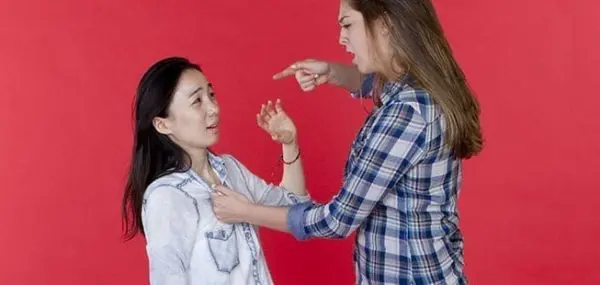Dear Your Teen:
Last August, just before the start of her high school senior year, my granddaughter was bullied by three former friends, one of whom is her cousin. Both my granddaughter and her cousin have since graduated and will be going their separate ways, but the incident has affected our whole family. It frustrates me to deal with the cousin and her mother, who can’t figure out why I’m so cool towards them. It has put a strain on my close relationship with the cousin’s grandparents. Most importantly, my granddaughter has lost trust in other girls and stays close to home. Where do I go from here?
EXPERT | Dr. Tori Cordiano
How lucky your granddaughter is to have such a devoted and concerned relative in her corner. It sounds like she weathered an extremely challenging situation. And I would imagine she is glad to have the experience – and these peers – in her rearview mirror. As difficult as bullying is for a teenager to manage, it is also incredibly painful for those who love that teenager to witness.
One particularly tough aspect is that, especially for older teens, the adults around them are limited in how much they can intervene. Being a grandparent, you may have struggled with having a limited set of actions at your disposal that in no way match your desire to help and your strong emotions about the situation. With this experience now in the past, you can turn your attention to two important tasks – supporting your granddaughter as she moves past the bullying and managing your own emotions about the girls involved.
Dealing with Bullying
Let’s first consider how you might support your granddaughter. It sounds like you have regular contact and a close relationship with her, which also means that you probably have a sense of how much (or how little) she wants to rehash this situation. While it may remain top of mind for you, she may not want to dwell on the past. Of course, if your granddaughter expresses a desire to talk about the situation, you can be an empathic listener and give her space to process the events in the context of her sturdy relationship with you.
Even a well-timed, “Just so you know, if you ever want to talk about what happened, I’m all ears. I want to respect your wishes, and maybe you’re ready to put it to bed, but I’m always here if you want to talk,” goes a long way toward letting her know that you are a safe space for this type of conversation. If she chooses not to take you up on the offer, you really need to follow her lead. Parents, grandparents and other adults who care deeply about teens often take longer to move past situations in which their teens were hurt than the teens themselves. She may be ready to spend less time thinking about the past and more time figuring out how to move forward.
In that vein, your role may shift to supporting her as she establishes new relationships and experiences different parts of life beyond high school. You can stay connected to her by asking about her friends, her work, or her classes and giving her space to share the positive (or negative) parts of her life today.
Handling Family Bullying
Now, for the second part of this equation – managing your own emotions about the situation and the people involved. You mentioned having regular contact with relatives of those who bullied your granddaughter. Are you able to limit contact with them, particularly while this incident is fresh in your mind? If seeing them less often gives you relief while you process your own emotions about the situation, perhaps that can alleviate some of the discomfort you feel in their presence.
You may also want to talk with your granddaughter about why you are distant and cool with these relatives and how she would like you to proceed with them. If she is in favor of you sharing your thoughts about the situation, you might try direct communication with the family members involved. Something along the lines of: “I’m sure you’re aware of the situation that happened with our girls last year. My top priority is my granddaughter’s well-being. So right now, I’m choosing to limit how much I’m around those involved.”
If your granddaughter would rather you not bring up the issue with extended family, you’ll once again want to follow her wishes and may need to find ways to limit your contact with them or to keep the conversations brief.
Ultimately, this happened to your granddaughter, making her the appropriate decider of how much the situation is revisited. As her grandmother, you play an important role in supporting her as she moves forward assertively into the next chapter of her life.




